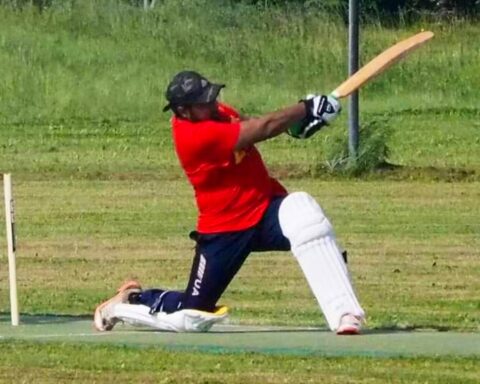Political and religious turbulence, violent militancy and natural disasters are nothing to brag about — but for many foreign expatriates arriving in Pakistan over the past decade, it was a thrill to be caught up in the middle of all this turmoil. I often heard them say, “It’s such an exciting time to be in Pakistan.”
After all, they knew it was only a temporary sojourn for them.
It is one thing to find a country’s politics “exciting” as a temporary visitor. It is another thing completely to try and understand it as an immigrant making a new home.
Most new immigrants to Canada, particularly those arriving from politically fragile states such as Pakistan, come with high expectations of political stability and honest politics. After all, Canada’s model of a stable liberal democracy is what attracts many immigrants in the first place.
Surprising similarities
But where politics is concerned, it’s surprising how similar all countries can be, albeit on different scales and levels. As such, newspaper headlines have unearthed a Canada that was difficult for many Canadians to comprehend and even more difficult for newcomers to the country.
It began for me with the return of the prodigal son, Justin Trudeau, a welcome addition to an otherwise lacklustre political landscape. At least for now, Trudeau is a party leaders following in his father’s footsteps, and, ironically, the West has always looked upon political dynasties with suspicion (To wit, the Bhuttos in Pakistan, the Gandhis in India, and the Aquinos in the Philippines, to name a few). Yet, Canada now faces the choice of ushering in a political dynasty of its own — all because of a lack of a strong political opposition base, something one would not expect in a western liberal democratic state.
The Senate scandal
This was followed by the all-consuming, never-ending Senate expense scandal. The story began simply enough but soon degenerated into a sordid affair, complete with outright denial by all parties involved. For many immigrants, scandals like this are all too common and almost accepted as part of political life in their respective homelands.
It is what the western world loves to use as a trump card to promote its ideals of “good governance.” But when it happens in one’s own backyard, albeit on a much smaller scale, it is reminiscent of how easily any nation can slip into denial of its political imperfections.
But when it happens in one’s own backyard, albeit on a much smaller scale, it is reminiscent of how easily any nation can slip into denial of its political imperfections.
Rob Ford saga
Speaking of denial, the Rob Ford saga left many of us new immigrants speechless, as much as it did Canadians and others around the world. In many of our birth countries, our politicians rule the streets and the cities with their might, and get away with it. But to see the mayor of Canada’s largest city — the top destination for immigrants — barely accept responsibility of his own wrongdoings and then actually decide to run again made a lot of us feel quite at home, but unfortunately for all the wrong reasons.
There were several other news events interspersed among the headlines that newcomers like myself did not expect in Canada, at least not in such quick succession. To name a few: the resignation of Montreal’s mayor over corruption charges (following his predecessor’s resignation for the same reason); Canada’s refusal to sign and/or withdraw from several United Nations (UN) treaties, including the (Small) Arms Trade Treaty and the UN Convention to Combat Desertification; the defunding of abortions for war rape victims and some poor scores on the Global Gender Gap Report.
Add to that an underhandedly racist Quebec Charter of Values, the so-called Robocalls exposé, a hidden world of temporary foreign workers, the muzzling of scientific expression, an unabashed preference for economic gain over global human rights, and, occasionally, I feel like I am back in my country-of-birth again.
Silence of citizens
Not counting the umpteen public polls conducted by Canadians (it seems like almost a national pastime here), the most perplexing thing to a new immigrant about Canadian politics is the silence of its citizens.
For many new immigrants coming from politically weak states, the desire to participate in the political culture of our adopted home is great. Here, we have the rare opportunity to speak our minds without fearing for our lives and reputations, and of truly contributing to making our community, city, and country a better place. But. instead. immigrants to Canada repeatedly heard bland statements from politicians about “Canadian values” and “Canada’s place in the world,” with virtually no rumblings from its own citizens about accountability over any of these unfortunate events.
The overarching political story this year is the run up to the next federal elections in 2015. Most new immigrants will not yet be eligible to vote in these elections. But, if voter turnout is viewed as the key indicator of active political engagement in Canada, then, unfortunately, the numbers do not match up. Voter participation fell over 14 per cent between 1988 and 2011, according to Elections Canada. Ironically, in Pakistan, a country plagued with martial law and rigged elections, voter turnout increased by almost 12 per cent between 1988 and 2013 — an interesting dichotomy, of stability leading to political apathy, perhaps.
Ironically, in Pakistan, a country plagued with martial law and rigged elections, voter turnout increased by almost 12 per cent between 1988 and 2013 — an interesting dichotomy, of stability leading to political apathy, perhaps.
So what does all of this translate into for a new immigrant to Canada in the early 21st century? It definitely shows that politics is in many ways plagued by the same integrity issues in both rich and poor nations, albeit with some variations.
For new immigrants, though, the difference lies in the fact that in many of our countries of origin, hope is diminishing on several counts. For Canada, however, there is still a great deal of hope and potential for political vibrancy. It is this hope that immigrants also want to be a part of, so that we too can claim “its an exciting time to be in Canada!” We just need to ensure that the excitment is for all the right reasons.
Themrise Khan is a freelance social policy research professional and a recent immigrant to Canada. She has a keen interest in issues of migration and migrant diasporas, as well as foreign policy and international relations.





